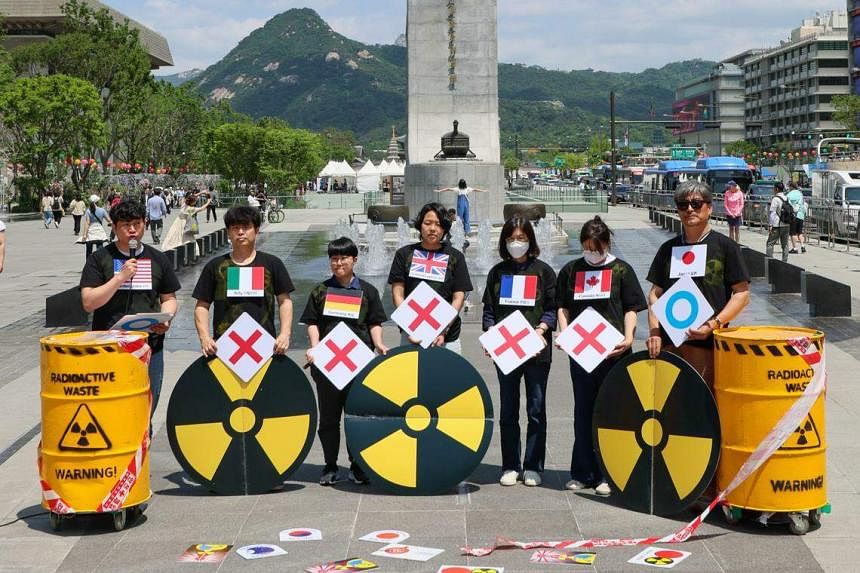Global Courant 2023-05-19 11:50:00
TOKYO – A delegation of South Korean experts will visit Japan from May 22 to May 25 to collect information on the planned discharge of treated wastewater from the tsunami-devastated Fukushima Daiichi nuclear power plant, Japan’s foreign ministry said.
The group plans to hold a meeting in Tokyo next Tuesday. It will then visit the factory on Wednesday and Thursday to receive explanations from Japanese officials, the ministry said in an emailed statement on Friday.
Plans for the release have sparked widespread concern in South Korea, with neighboring discord posing a potential threat to the recent rapprochement between the two governments. President Yoon Suk-yeol has been trying to mend ties in an effort to build a bulwark against regional threats, and will hold his third summit since March with Japanese Prime Minister Fumio Kishida this weekend.
Japanese utility giant Tepco plans to release more than 1 million cubic meters of treated radioactive water — enough to fill 500 Olympic-size swimming pools — from its nuclear power plant in the Pacific Ocean, part of the nearly $200 billion. billion) effort to clean up the worst nuclear accident since Chernobyl.
The Japanese government has argued that releasing the water can be done safely and is necessary as storage space at the plant is running low. The country’s nuclear regulator approved the release plan last year, which would include removing most of the radioactive elements and diluting the water, then releasing it about 1km offshore using an undersea tunnel.
“Because it is so close, there is constant frustration and fear, especially among the people involved in the fishing industry,” Korea National Diplomatic Academy Chancellor Park Cheol-hee, an adviser to Mr. Yoon, said earlier this week. reporters. He called on Japan to be “modest and humble” in explaining the matter.
China and Taiwan have also expressed concern about the environmental effects of the release, which comes as Japan, which is prone to earthquakes, wants to make greater use of nuclear power to help meet its climate change targets. BLOOMBERG




